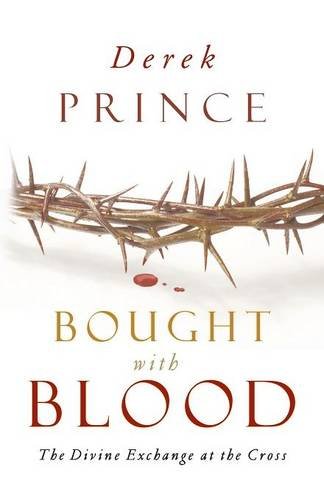Benefits of Obedience – Part 4
Category : Biblical Meditation
The benefits that come as a result of our obedience to God are numerous and overwhelming in their scope. Thus far we have considered the basics of obedience and key concepts related to obedience as well as learning some of the many aspects of obedience as revealed in Scripture.
Many Christians seem to know obedience is good and right, but have not meditated on the overwhelming blessing that comes as a result of it. Having looked at many Scriptures already through this series, with more wonderful quotes to come, we can only stand amazed at what God wants to impart to us if we can only absorb it and learn to obey. Let’s begin by seeing how obedience opens a doorway for blessing to flow into our lives.
Establishes Us as a Holy People/Treasured Possession
Towards the end of Deuteronomy, a covenant is recorded between God and Israel. In it, Moses records that Israel proclaimed the Lord to be their God and in response, the Lord proclaimed that Israel is His special people.
“This day the LORD your God commands you to observe these statutes and judgments; therefore you shall be careful to observe them with all your heart and with all your soul. Today you have proclaimed the LORD to be your God, and that you will walk in His ways and keep His statutes, His commandments, and His judgments, and that you will obey His voice. Also today the LORD has proclaimed you to be His special people, just as He promised you, that you should keep all His commandments, and that He will set you high above all nations which He has made, in praise, in name, and in honour, and that you may be a holy people to the LORD your God, just as He has spoken.” Deuteronomy 26:16-19
It is important to notice that God doesn’t just promise that Israel will be special in some small way – “He will set you high above all nations which He has made, in praise, in name, and in honour, and that you may be a holy people…” That is an amazing promise to His believing people.
Deuteronomy 28:9 brings out the condition that will enable us to be established as a holy people to God Himself and that is “if” we keep the commandments of the Lord our God and walk in His ways:
The LORD will establish you as a holy people to Himself, just as He has sworn to you, if you keep the commandments of the LORD your God and walk in His ways.
Then let us look at a passage that highlights this same truth in the New Testament which is from Peter’s first epistle:
Therefore, to you who believe, He is precious; but to those who are disobedient, “The stone which the builders rejected has become the chief cornerstone,” and “A stone of stumbling and a rock of offense.” They stumble, being disobedient to the word, to which they also were appointed.
But you are a chosen generation, a royal priesthood, a holy nation, His own special people, that you may proclaim the praises of Him who called you out of darkness into His marvellous light; 1 Peter 2:7-9
In the beginning of this passage, we read about two groups of people: believers and those who are disobedient. Those two groups are incompatible. We cannot be believers and disobedient at the same time because when we believe, it moves us to obedience.
Peter contrasts these two groups. First he talks about the disobedient stumbling and then talks about those who are obedient as a result of their belief. This second group is called “a chosen generation, a royal priesthood, a holy nation, His own special people” While we, His people, don’t necessarily feel like we are these things, that is what God says. When we start believing what He says about us, then we will start to be the people He has destined us to be.
A Portal for Blessing
The book of Deuteronomy has a great deal to say about obedience and disobedience. Blessings as a result of obedience and curses as a result of disobedience. Within the book, Deuteronomy 28 is divided into two distinct parts – the first 14 verses tell us about the tremendous blessings that are ours:
Now it shall come to pass, if you diligently obey the voice of the LORD your God, to observe carefully all His commandments which I command you today, that the LORD your God will set you high above all nations of the earth. And all these blessings shall come upon you and overtake you, because you obey the voice of the LORD your God. Deuteronomy 28:1-2
Starting at verse 15 (54 verses in total), we see the alternative:
But it shall come to pass, if you do not obey the voice of the LORD your God, to observe carefully all His commandments and His statutes which I command you today, that all these curses will come upon you and overtake you…
The condition is two-fold: diligently hearing and obeying the voice of the Lord. This brings out the important truth that you can’t obey if you can’t hear. How important it is that we cultivate the ability to hear God’s voice through the Scriptures as well as through His Holy Spirit, also showing discernment concerning the prophetic voices in our midst.
This truth is even more simply stated by Jesus’ response when, “a certain woman from the crowd raised her voice and said to Him, “Blessed is the womb that bore You, and the breasts which nursed You!””
But He said, “More than that, blessed are those who hear the word of God and keep it!” Luke 11:28
That is the heart of the matter – we are to “hear the word of God and keep [obey] it!” – then we will be blessed.
Brings Blessing to our Children
It is wonderful to think that when we hear God’s voice and we obey it that we receive blessing, but God in His kindness takes things a step further. Not only does He promise to bless us, but to bless our “children after [us] forever”.
Observe and obey all these words which I command you, that it may go well with you and your children after you forever, when you do what is good and right in the sight of the LORD your God. Deuteronomy 12:28
A Way to Life in Time and Eternity
Even without having something concrete to base our reasoning on, the vast majority of Christians would agree that life and length of life is a good thing. We feel robbed when a child or young person dies because it seems like their potential to live and love has been taken away early.
Appreciating the fact that early deaths remain a mystery and something that we must submit to the sovereignty of God, the Bible does indicate that life is a blessing that comes, and is supernaturally protected, as a result of faith and obedience.
That well known verse in Habakkuk 2:4: “Behold the proud, His soul is not upright in him; But the just shall live by his faith.” Which is quoted by Paul in Romans 1:17 and Galatians 3:11 as well as by the writer to the Hebrews in chapter 10:38.
Now we have seen previously that true faith necessarily precedes obedience and the Bible also teaches us that if we obey God’s commands that we will live by them.
“Notwithstanding, the children rebelled against Me; they did not walk in My statutes, and were not careful to observe My judgments, ‘which, if a man does, he shall live by them’ Ezekiel 20:21 (see also v13)
It is a wonderful truth to know that through faith and obedience we receive life which God Himself protects, but Scripture also talks about the lengthening of life based on our obedience. Here we read God’s promise to Solomon:
So if you walk in My ways, to keep My statutes and My commandments, as your father David walked, then I will lengthen your days.” 1 Kings 3:14
If that were not enough – to have life and to receive the promise of a lengthened life through obedience, Jesus takes us out of time and into eternity when He says:
Most assuredly, I say to you, if anyone keeps My word he shall never see death.” John 8:51
Commenting on the life that Jesus affords us through His death and resurrection, Derek Prince says the following:
This, then, is the essence of the gospel message. There is a divine, eternal life that has its source in God alone. God has made this life available to us in Jesus Christ. As we receive Jesus by faith in our hearts and yield our lives to Him in full obedience, we receive in Him the very life of God Himself. This life is not something reserved for another world or a future existence. It is something that we can experience here and now. “He who has the Son has the life” (1 John 5:12). We have everlasting life at this very moment—and on into eternity. It is ours to enjoy from the very moment that we truly put our faith in Jesus Christ.
An Invitation to Prosperity
In the opening paragraph of Chapter 1 in Derek Prince’s book The Promise of Provision, he makes the following statement:
One distinctive aspect of God, as He is revealed in the Bible, is His abundance. God is not poor. He is not stingy. He is not limited. He is a God of abundance. His grace is abundant. His love is abundant. His provision is abundant. If we are to represent God accurately to the world around us—the way He really is—then we must learn to represent Him as a God of abundance.
There has been so much misrepresentation of this truth that many people seem almost scared to broach this subject, but Scripture is quite clear that God’s people are called to prosper. As it says in 3 John 1:2, “Beloved, I pray that you may prosper in all things and be in health just as your soul prospers.”
There are numerous verses that inform us on how we come to enjoy this prosperity. Here are a few:
Therefore hear, O Israel, and be careful to observe it, that it may be well with you, and that you may multiply greatly as the LORD God of your fathers has promised you—‘a land flowing with milk and honey.’ Deuteronomy 6:3
And keep the charge of the LORD your God: to walk in His ways, to keep His statutes, His commandments, His judgments, and His testimonies, as it is written in the Law of Moses, that you may prosper in all that you do and wherever you turn; 1 Kings 2:3
Thus Hezekiah did throughout all Judah, and he did what was good and right and true before the LORD his God. And in every work that he began in the service of the house of God, in the law and in the commandment, to seek his God, he did it with all his heart. So he prospered. 2 Chronicles 31:20-21
Blessed is the man… [whose] delight is in the law of the LORD, and in His law he meditates day and night. He shall be like a tree planted by the rivers of water that brings forth its fruit in its season, whose leaf also shall not wither; and whatever he does shall prosper. Psalm 1:1-3
In the first passage, we are told to “hear” and “be careful to observe [the Law]”. The second passage tells us to “keep the charge of the Lord” which is “to walk in His ways, to keep His statutes, His commandments, His judgements, and His testimonies”. The third quote about Hezekiah, we learn that “he did what was good and right and true before the Lord” and that “he did it with all his heart”
In Psalm 1, we read that the blessed man is the one who delights in the law of the Lord and meditates on it day and night. All of these things caused prosperity and just as they were available in each of these examples, they are available to us too.
Conclusion
You can begin to see why I opened this article with the sentence, “The benefits that come as a result of our obedience to God are numerous and overwhelming in their scope.”
In Part 4, we have seen that obedience establishes us a “holy people” and a “treasured possession”. Furthermore it is a doorway for blessing – not only for us, but also for our children forever. We have learned that obedience opens a way to life both in time and eternity and that it carries with it the invitation to prosper.
Prayer Response
Thank you, Father, for the wonderful blessings that you long to pour out on those who are obedient to your voice – through your Word and the direction of Your Holy Spirit. I pray that as I grow in my obedience, that you would develop my character in such a way that I can handle the blessings that you shower on me and my family and all that I do. In Jesus’ name. Amen. – Peter Lindop



